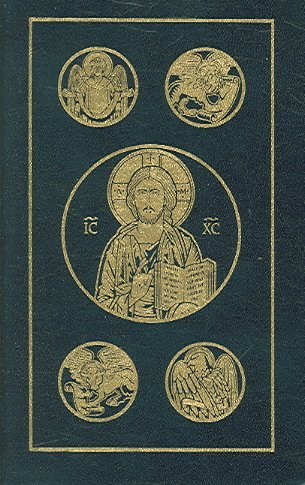A number of years ago I decided I wanted to read through the Gospels regularly; likewise the Psalms. After some trial and error I created a daily reading chart that would take me through the four Gospels and the Book of Psalms every 3 months – four times a year. One chapter of the Gospel and one or two Psalms gets it done. Yes I try to do it daily; and yes sometimes I miss. But over a year I still get through a lot of Gospel and Psalms with odds on I've read them at least three times! This isn't a guilt trip – it needs discipline but with a small d. And the benefits are not surprising:
The Gospels are read as narrative, not piecemeal. Granted a chapter can be a big chunk (John 6 isn't rec reational browsing) but over time there is a sense of coherence and unfolding story.
The four Gospels take on their own characteristics and you become aware of Jesus as a multi-dimensional figure rather than a vague confluence of Gospel fragments arranging themselves in our minds as if the Gospel writers didn't mind us playing Scrabble with the text. Matthew's Jesus is didactic, a re-presentation of Moses and Exodus and new covenant on the Mount; Mark's Jesus is God in a hurry; Luke more than the others reaches to the margins in a story of inclusion, scandal and healing with Jesus as the protagonist of the Kingdom of God and the prophetic critique of power; John is all about glory, but a strange and beautiful glory of kenosis, the Word made flesh and dwelling amongst us, the presence in our history of I AM, and the defining confrontation of light and the darkness which can neither comprehend it or overcome it.
The voice of Jesus becomes familiar, and the different accents noticeable from Gospel to Gospel. There is the voice that speaks the words; and their is the message of how Jesus acts, what he does, how he behavesm who he is. By the way I want to do another post on What Would Jesus Do? I'm not at all sure we can be as confirdent of answering that question as is sometimes claimed.
Then there's the Psalms. A book of prayers that disturbs as much as comforts; in which complaint and praise can pour from the same heart; in which silence can be companionable or threatening, contemplative or crushed; and in which the conversation with God moves from intimacy and joy to alienation and fear.
Regular reading of the Psalms has been a spiritual habit of the church from the beginning. And no wonder. The whole range of emotion and human experience, the peaks and troughs of the faith journey, the endless perspectives of the soul arguing with, wrestling with, resting in, trusting in, fearful of, mindful of, angry at, wondering at, God.
My new RSV New Testament and Psalms was bought to continue a daily exposure of heart and mind, conscience and will, to those four Gospels and the Prayer Book of Israel. Below is a file showing the first half of 2013. Soon I'll produce the one for July to December.


